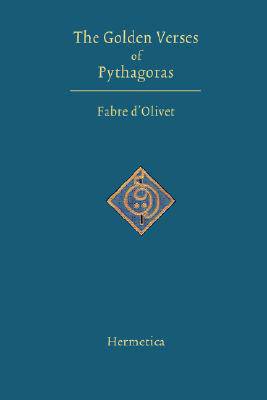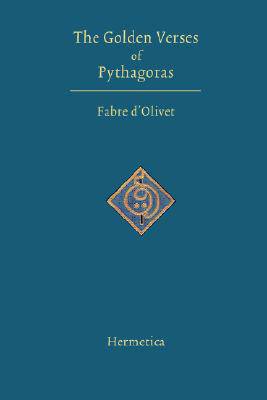
- Retrait gratuit dans votre magasin Club
- 7.000.000 titres dans notre catalogue
- Payer en toute sécurité
- Toujours un magasin près de chez vous
- Retrait gratuit dans votre magasin Club
- 7.000.0000 titres dans notre catalogue
- Payer en toute sécurité
- Toujours un magasin près de chez vous
Description
Antoine Fabre d'Olivet (December 8, 1767-March 25, 1825) was a French author, poet, and composer whose biblical and philosophical hermeneutics in?uenced many occultists, such as Eliphas Lévi and Gerard Encausse (Papus), and René Guénon. D'Olivet spent his life pursuing the esoteric wisdom concealed in the Hebrew scriptures, Greek philosophy, and the symbolism of many ancient cultures as far back as ancient India, Persia, and Egypt. His writings are considered classics of the Hermetic tradition. His best known works today are his research on the Hebrew language (The Hebraic Tongue Restored), his translation and interpretation of the writings of Pythagoras (The Golden Verses of Pythagoras), and his writings on the sacred art of music. In addition to the above works, Hermetica has published in consistent facsimile format for its Collected Works of Fabre d'Olivet series Cain and The Healing of Rodolphe Grivel, as well as Hermeneutic Interpretation of the Origin of the Social State of Man and the Destiny of the Adamic Race. D'Olivet's mastery of many ancient languages and their literatures enabled him to write (in the time of Napoleon) this extraordinary text which remains a landmark investigation of the deeper esoteric undercurrents at work in the history of culture. The Golden Verses of Pythagoras, so remarkable for their moral elevation, and standing as the most beautiful monument of antiquity raised in honor of Wisdom, were originally transcribed by Lysis, though it is to Hierocles that we owe the version that has come down to us. Fabre d'Olivet has translated them into French verse of special form (eumolpique), and in his Discourse upon the Essence and Form of Poetry in the present volume he explains and illustrates this melodious style. In his Examinations of the Golden Verses, which comprises the last division of this book, he has drawn with the power of his great mind the metaphysical correlation of Providence, Destiny, and Will.
Spécifications
Parties prenantes
- Auteur(s) :
- Editeur:
Contenu
- Nombre de pages :
- 296
- Langue:
- Anglais
Caractéristiques
- EAN:
- 9781597312134
- Date de parution :
- 15-11-07
- Format:
- Livre relié
- Format numérique:
- Genaaid
- Dimensions :
- 152 mm x 229 mm
- Poids :
- 571 g

Les avis
Nous publions uniquement les avis qui respectent les conditions requises. Consultez nos conditions pour les avis.






